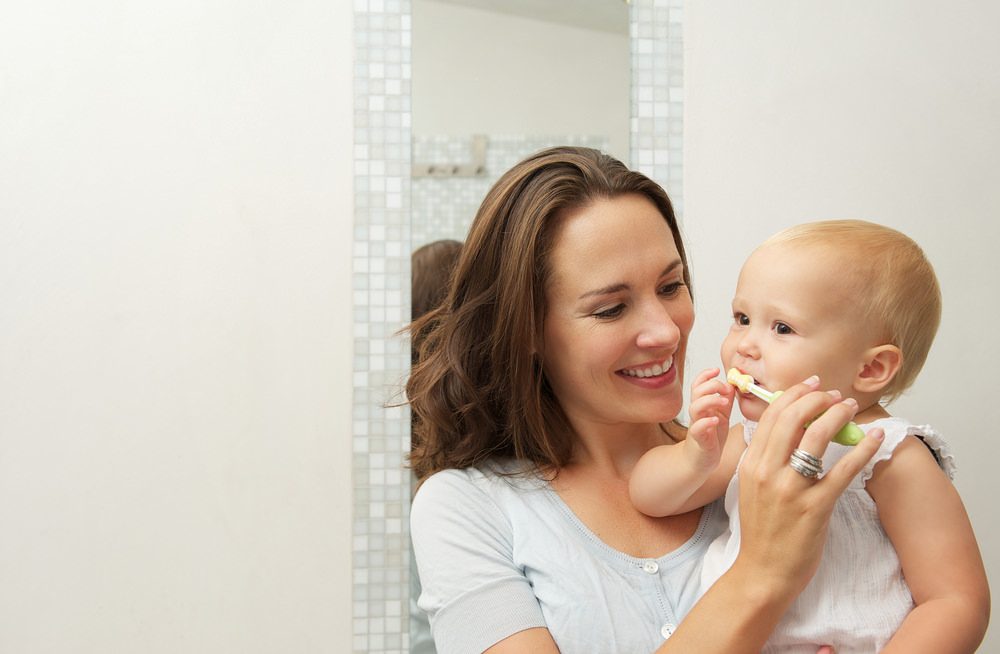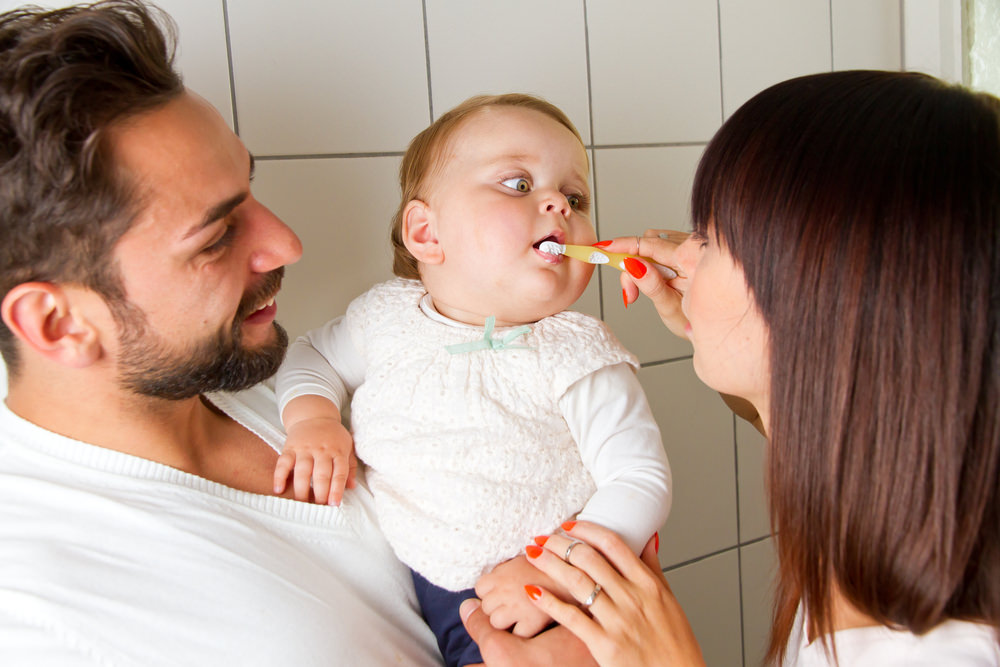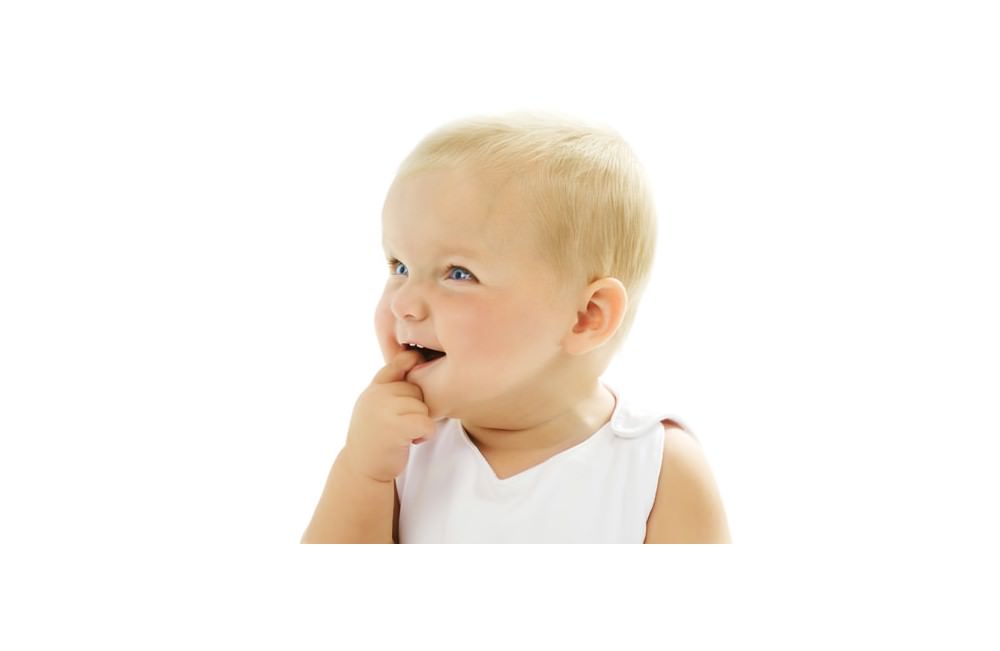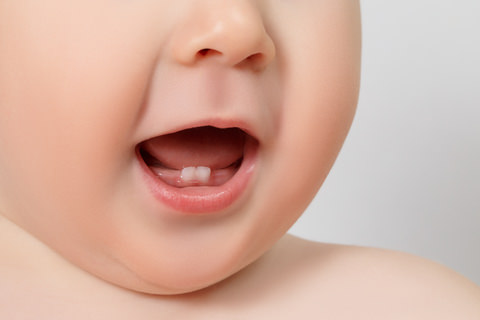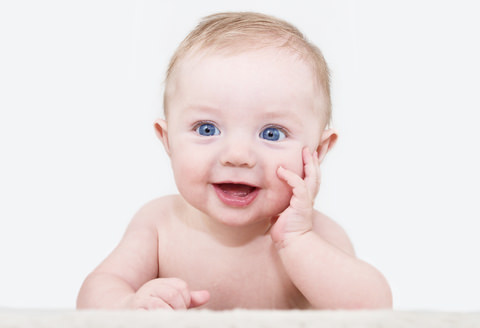Baby Toothpaste Recommendations – Including Natural Alternatives
If you have or are planning on having a baby, you may wonder – What are my options when it comes to baby toothpaste?
There are a lot of well-known brands of toothpaste on the market and it can be often quite hard to work out which ones are good.
Let’s start with some important points and go from there!
What to Look for When Buying Baby Toothpaste?
There are several things you should take into consideration when picking toothpaste for your baby.
We thought about what you should prioritise when deciding on baby toothpaste and below is our list.
Fluoride in Toothpaste for Babies
It is true that too much fluoride can have an impact called fluorosis which will intrinsically stain their teeth.
This will occur if they have too much fluoride in their body – perhaps from:
- The toothpaste itself, such as if they are using too much, or not spitting it out, instead they keep swallowing it.
- The water they are drinking.
- Possibly even if you (their mother) took too much fluoride whilst pregnant.
However, as long as your child is brushing their teeth correctly, from a dental standpoint, fluoride can be a good thing, as it helps to prevent cavities.
But, if worried, you can speak to your dentist about whether fluoride is necessary.
If you are after more natural alternatives keep reading, I discuss this below.
With fluoride out of the picture, other things to consider include:
- Toothpaste – the Australian Dental Association have given their seal of approval.
- Safety – We need one that is safe to swallow, as your baby will not yet have learnt how to spit their toothpaste.
Though it may be marked as “do not swallow”, as long as it has an age-appropriate fluoride level, it will be okay if your baby does swallow a small amount.
Baby Toothpaste Flavours
As some babies like strong flavours and others don’t this might be decided by trial and error. However, they should enjoy having flavour nonetheless.
You’ll find that mint isn’t common in baby toothpaste for this reason, as they tend to find the flavour too intense.
By avoiding ingredients used in adult toothpaste to battle things such as discolouration, sensitivity, and build-up of tartar.
These are not necessary for children’s toothpaste.
Highly-rated Baby Toothpaste
A child can use the same toothpaste throughout their entire childhood, so if you are struggling to find one, try searching online and checking our reviews from parents who have used it, this can be a great help and put your mind at ease!
Having a chat with your mothers or fathers group can help you as well.
Word of mouth is a fantastic way to find something that may just be a hit with your little one.
Finally, try connecting to baby/parent groups on Facebook.
My partner found online research a huge help when we had our little one.
What is the Best Baby Toothpaste for a 6-8 Month-Old?
Dental care for your baby can start before their first tooth emerges, which generally tends to happen when they are around 6-8 months old.
From when they are about 3 months old, you can gently wipe their gums with a piece of gauze or a clean, damp face cloth.
Do so twice daily, and this will help get your baby ready for brushing when their first tooth does emerge.
When they get their first tooth, you can try to introduce a soft toothbrush.
However, you may find at this age they will not be welcoming to receiving it.
Many babies will not agree to be given a toothbrush until they are 12 months old.
If your baby doesn’t like the toothbrush at around 6 months old, you can carry on using the gauze or face cloth to wipe the front and back of every new tooth.
It’s important to note that, if your baby does accept the toothbrush at this age, please only use water on the toothbrush, NOT toothpaste.
You can introduce toothpaste to them when they are 18 months old unless your dentist tells you otherwise.
For advice on how to do this, you can read my blog: “How to Take Care of Children’s Teeth – The Definitive Guide”.
What are the Best Natural Alternatives?
Our teeth are the gateway to a confident smile as well as our overall health, so it’s important we look after them from a young age.
There are plenty of natural alternatives that are free of chemicals, preservatives, artificial ingredients.
Below I have listed some natural alternatives for a toothpaste for your baby and how they work:
- Baking Soda – Dip their toothbrush in baking soda and brush like usual cleans teeth quite well.
- Sea Salt – Sea salt works like baking soda, as in, just dipping the brush in and rubbing cleans teeth effectively. If you’re worried about how abrasive the salt is, you can dilute it in water first.
- Herbal Tooth Powders – This alternative to toothpaste contains herbal ingredients that clean teeth, battle against infection, inflammation, and help reduce pain.
- Dry Brushing – This is the most natural way possible. Purely the mechanical action created when the toothbrush bristles rub is a decent technique.
However, keep in mind you miss out on the minty-fresh mouth that toothpaste provides.
- Water – If dry brushing does not appeal to you, you can simply moisten the toothbrush.
- All-Natural Soap – This may seem out of the ordinary, but yes, it’s possible to brush teeth with soap. A good choice is a soap with a peppermint scent, as it will leave a less soapy taste.
- Tooth Soap – If the idea of a normal soap in your baby’s mouth doesn’t sound tasty, there are specifically designed products. These are great natural alternatives, especially those without any additives.
- Essential Oils – Essential oils are useful for many things, including cleaning teeth. A drop of peppermint oil onto a dampened toothbrush is a simple, natural alternative to toothpaste.
You can think about making your own toothpaste from a combination of these ingredients, such as this recipe Home-made Non-Toxic Toothpaste.
Alternatively, there is natural toothpaste you may be able to purchase from your local chemist or grocery store, or online.
Look for one that does not contain Sodium Lauryl Sulfate (SLS), such as those listed below:
Do Natural Toothpastes Work as Well as Their Alternatives?
Natural toothpaste does not contain fluoride and as mentioned, fluoride can cause fluorosis if used incorrectly.
Natural toothpaste that doesn’t contain fluoride isn’t as effective in preventing tooth decay and thus cavities.
However, they do have some effectiveness.
They will still freshen your baby’s mouth and remove some plaque from their teeth.
Can Babies Get Holes in Their Teeth?
Yes, severe tooth decay can lead to holes in babies’ teeth.
Tooth decay is actually quite common in infants – it occurs 5 times more than asthma, 4 times more than childhood obesity, and 20 times more than diabetes.
Tooth decay, also known as dental caries, is diet-related in an infant.
It happens when germs in their mouth create plaque on the surface of their teeth.
These germs thrive on sugar that is in foods and drinks, producing an acid that damages the surface of the tooth.
With time, this acid can attack their teeth, eating the surface, causing holes known as cavities.
You should also try to avoid letting your child go to bed with a bottle of milk.
Sucking on a bottle of milk or the breast when falling asleep is one of the biggest causes of bottle caries – the disease that causes dental caries.
If you are feeding your baby and they do happen to fall asleep, grab a bit of gauze and with a gentle hand, open their mouth, and clean their teeth.
Alternatively, you can give your baby a little bit of water after feeding them. This clears their mouth of milk.
You can feed them as much water as they want – this is great for both their diet and dental regime.
Avoiding giving your baby fruit juice or cordials until they are older will also help prevent tooth decay.
Signs of tooth decay include:
- A dull, white band at the bottom of the teeth, near the gums (this is known as the gum line).
- Pain below the gum line that has concentrated on a certain tooth or area.
- Heightened sensitivity to extreme temperatures, such as hot or cold drinks.
- Discoloured brown or dark spots on the teeth, and
- Red, swollen gums.
- Pain when chewing, brushing, or sucking.
- Bad breath that will not be diminished by brushing.
If the decay has become severe, you may see:
- Visible black holes in the teeth.
- Broken teeth.
- An infection, which will create bumps or pimples on the gums and inflammation of the gums and face.
In this instance, you must take your child to visit a Dentist, to diagnose if it is a cavity, treat them, and get their oral health back on track.
Conclusion
No matter what option you choose to clean your baby’s teeth, their oral hygiene should be taken very seriously.
Taking good care of their teeth early on will give them solid dental hygiene practices that they will most likely never forget.
Even with them watching you clean your teeth, it will instil the notion, brushing your teeth is a good thing.
Incorporate self-esteem and confidence attributes in there as well, they will have a smile they are proud of, and they will thank you for it in the years to come.
Personally, I thank my mum and dad for encouraging and prompting me as a child to look after my teeth.
As a dad now of a 3-year-old, I am inspired to follow in my folk’s footsteps.
If you have older children and you are battling with them over brushing their teeth, you can read my post, “Tips to Help Parents Brush their Kids Teeth”.
By Anthony Cade
Created at June 30, 2021, Updated at January 25, 2025


